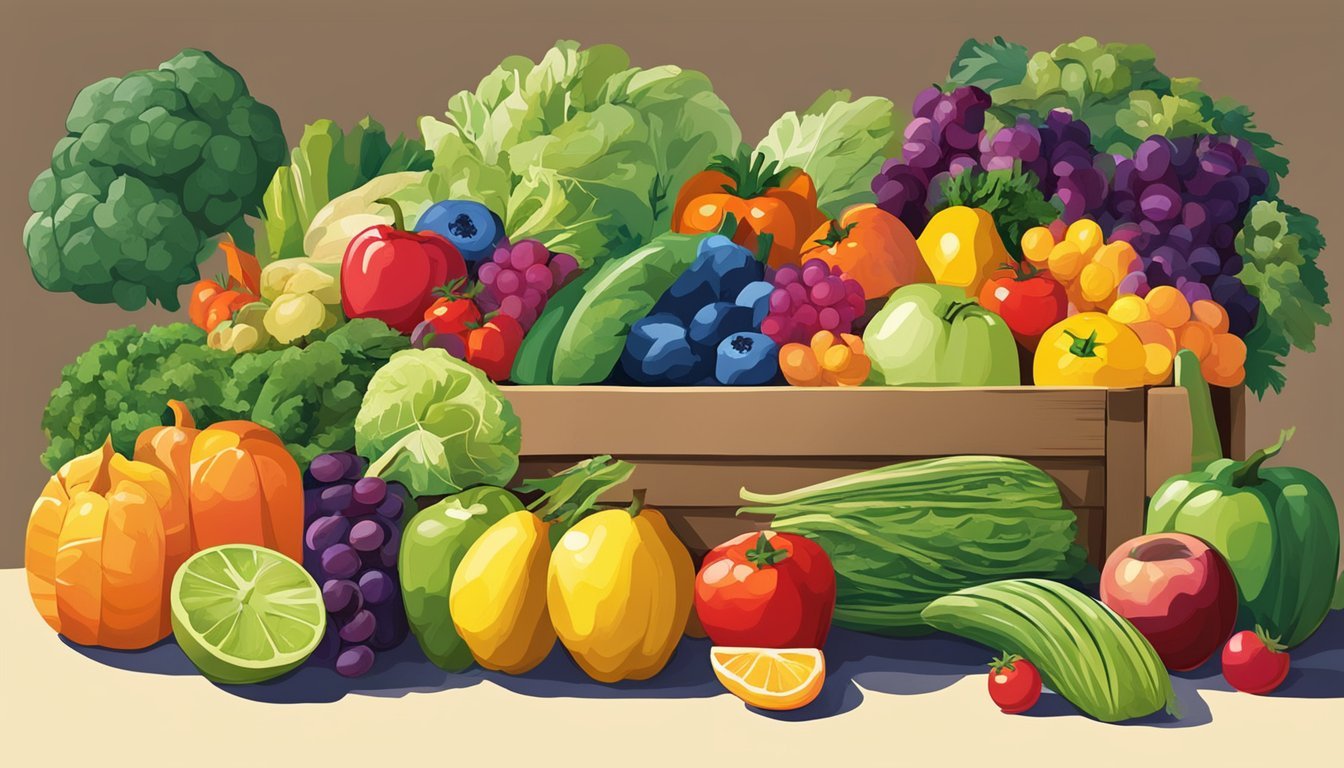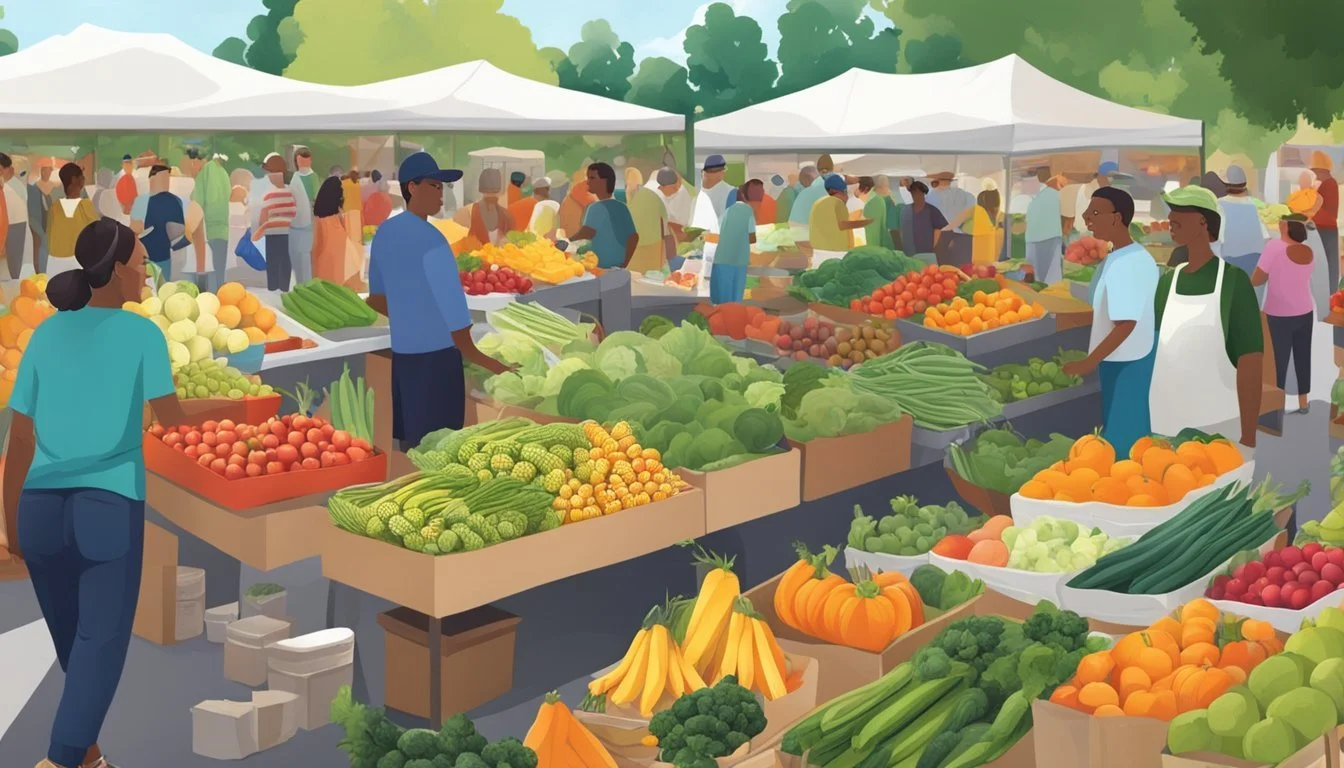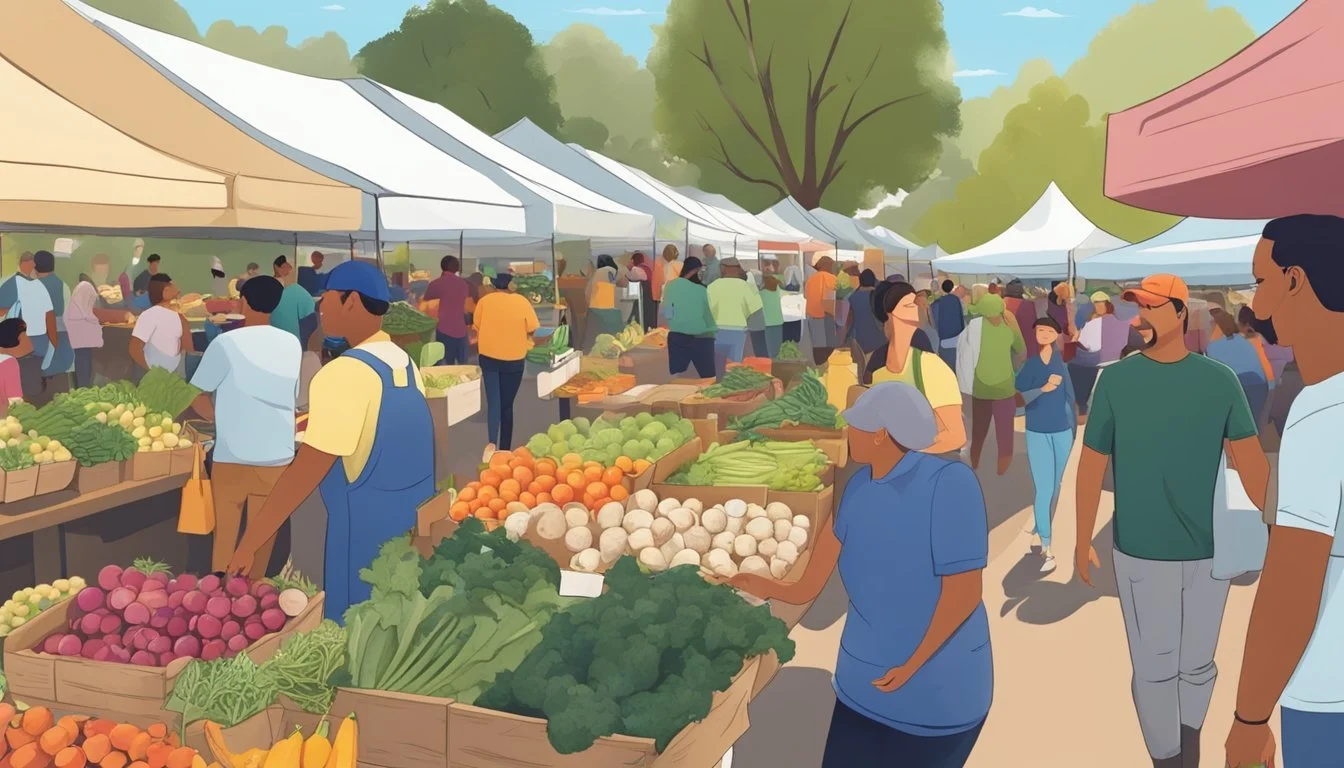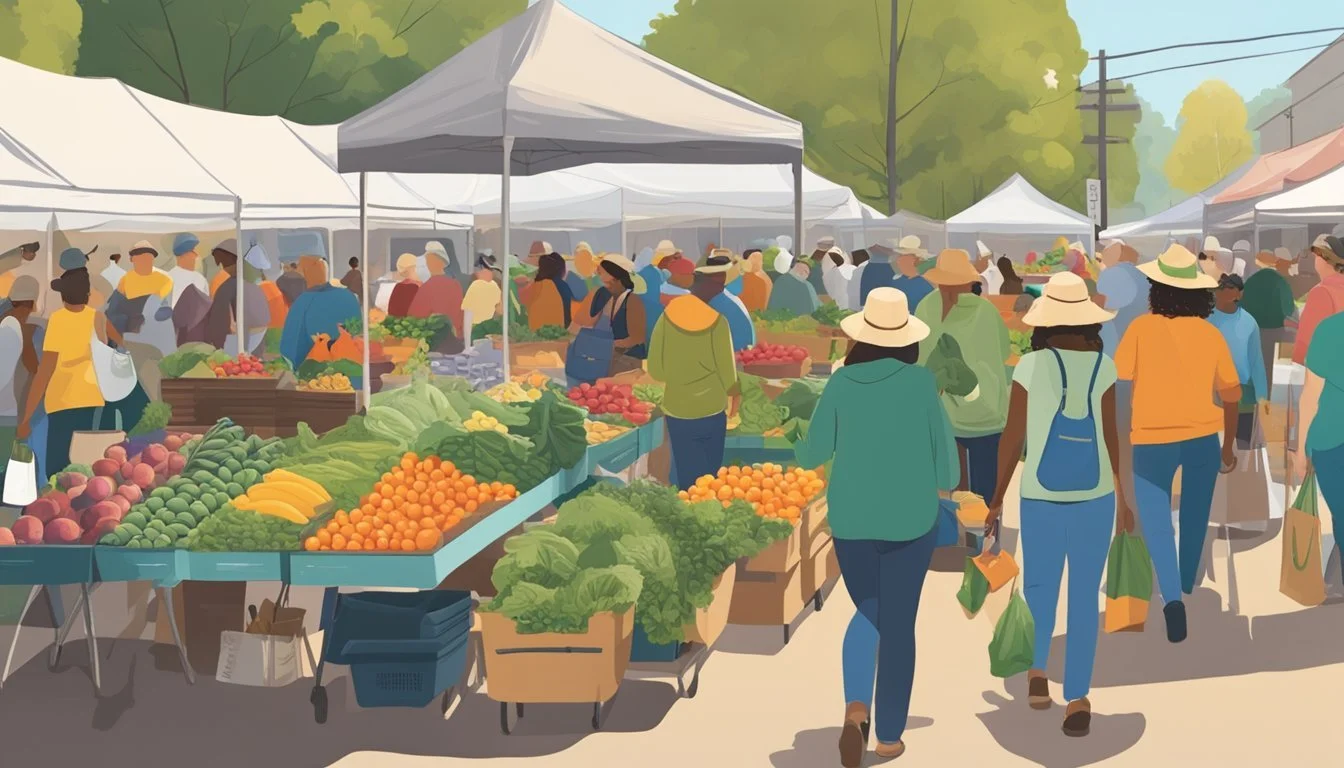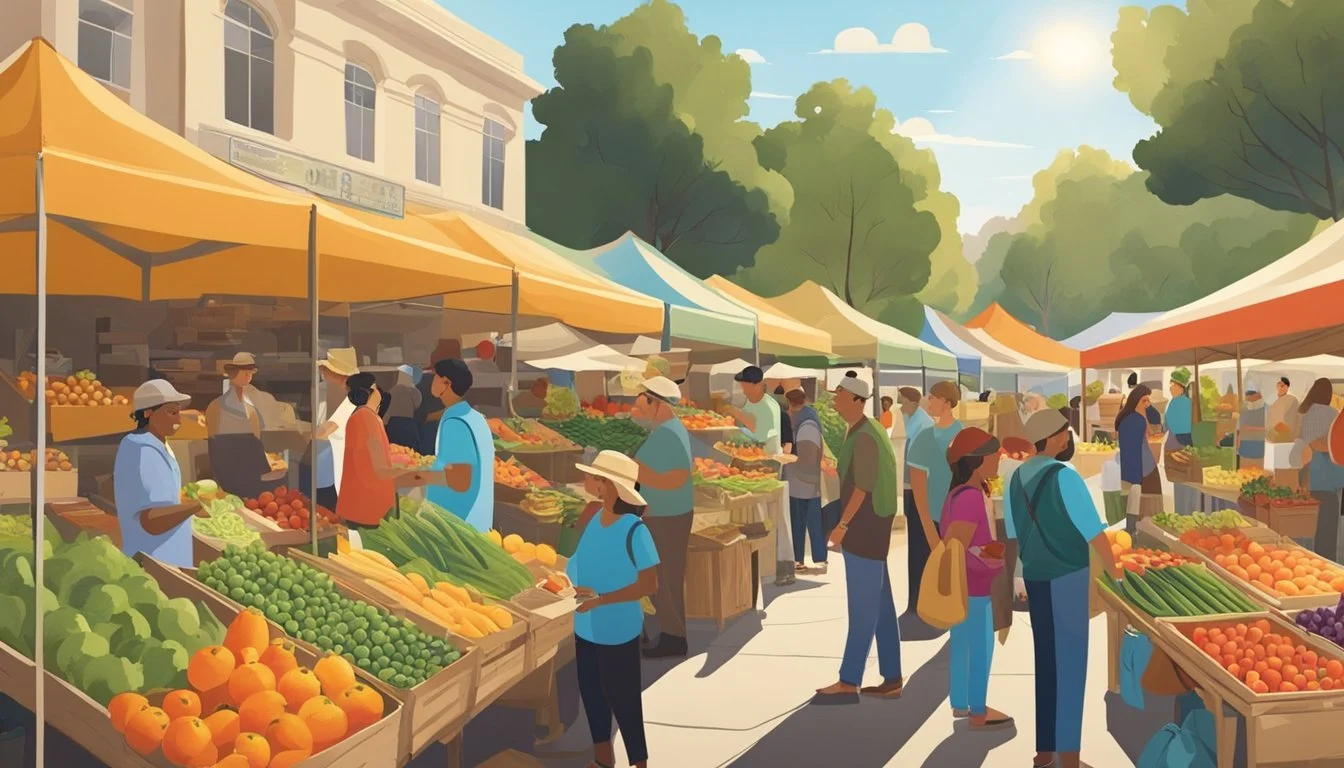Community Supported Agriculture (CSA) in Sacramento, CA
A Guide to Local Farm Shares
Community Supported Agriculture, commonly known as CSA, is a model of food production and distribution that directly connects farmers and consumers. In the Sacramento, CA region, CSAs play a vital role in promoting sustainable agriculture by allowing local residents to purchase shares of a farm's harvest in advance. This system underlines a shared commitment to ecological stewardship and supports the local economy through the direct sale of seasonal, often organic, farm-fresh produce.
Sacramento's agricultural community benefits from a Mediterranean climate that is conducive to year-round farming, which is reflected in the diverse offerings of the local CSAs. These programs typically deliver a box of vegetables and fruits to their members regularly throughout the season, fostering a relationship between the community and the food they consume. By participating in a CSA, members invest in their health and their local community, often gaining access to high-quality, nutritious food that is grown within a few miles of their homes.
The region boasts several CSA programs, each with its own unique approach to farming and community engagement. Many of these farms utilize agroecological techniques, minimizing their environmental impact while providing safe and nutritious food. Through CSAs, Sacramento residents are not just customers but become an integral part of the agricultural process, sharing both the risks and the bountiful rewards of the harvest.
Understanding CSA
Community Supported Agriculture (CSA) in Sacramento capitalizes on the region's agricultural richness, offering members fresh, locally-grown produce and fostering a strong community-farmer bond.
CSA Fundamentals
Community Supported Agriculture operates on a simple yet impactful premise: consumers purchase a share from local farmers, which entitles them to a portion of fresh, seasonal produce throughout a predetermined season. Each member invests upfront, sharing the risks and bounties of farming. This model underpins a robust local food system, enabling direct farmer-consumer interactions.
Benefits of CSA Membership
CSA members enjoy multiple benefits:
Direct access to nutritious, farm-fresh produce often picked at its peak.
A strengthened local economy, supporting neighboring farmers directly.
Insights into the farming process and an enhanced sense of community.
Members not only relish the flavors of their harvest but also contribute to sustainable agricultural practices within their community.
CSA Seasonality
The span of a CSA season in Sacramento usually aligns with the region's growing season. Typically, a CSA could operate:
July - November: Full season programs, offering a steady supply of produce.
Monthly: Membership options for regular but less frequent distributions.
One-Time: Single deliveries for those seeking trial or occasional participation.
The contents of each harvest share vary with the season, ensuring that members receive the freshest and highest variety of local produce available at the time.
CSA in Sacramento
Community Supported Agriculture programs in Sacramento offer residents a direct way to purchase fresh, locally-grown produce while supporting area farmers. Consumers buy shares from local farms and receive a portion of seasonal harvests in return.
Local CSA Programs
Sacramento boasts a variety of CSA options aimed at providing nutritional food to individuals while fostering community engagement and ecosystem health. LocalHarvest lists a small vegetable farm near downtown Sacramento that follows agroecological techniques. Members of their CSA program can expect to commit to different tiers ranging from full season to single-time purchases. Three Sisters Gardens also presents a CSA program, delivering weekly boxes of freshly harvested organic vegetables, which people can pick up at designated locations in West Sacramento.
CSA Program Location Pick-up Days Price Range Local Vegetable Farm Near Downtown Full Season $450, Monthly $115, One Time $38.50 Three Sisters Gardens West Sacramento Weekly $800, Biweekly $440, Monthly $230
The Community Alliance with Family Farmers supports local CSAs by helping consumers connect directly with farmers. This not only allows members to receive regular deliveries of seasonal goods but also to invest in their health and community.
Picking the Right CSA
When choosing a CSA in Sacramento, potential members should consider several factors to determine the best fit for their needs. Location is key—proximity to pickup points can influence convenience. Cost and frequency of delivery are also important. Most CSAs offer different pricing tiers based on the quantity and regularity of produce delivery. Individuals interested in CSAs should evaluate the variety and type of produce offered as well, ensuring it aligns with their dietary preferences and cooking habits. Checking for organic certification might also be a priority for those valuing organic produce. Consumers also benefit from engaging with their chosen farm through farm visits or participation in community events, fortifying the connection between the grower and consumer.
Operational Aspects of CSA
Community Supported Agriculture in the Sacramento area encompasses innovative farming practices and distribution strategies aimed at connecting local farmers with the community. These operationals facets ensure a stable supply of possibly organic, local food while supporting agricultural sustainability.
CSA Farming Techniques
Farmers engaged in CSA in Sacramento often employ agroecological techniques to grow a variety of produce. These methods prioritize environmental health, aiming to create a beneficial synergy between the farm and its natural surroundings. Farmers may focus on organic practices to maintain soil fertility, manage pests, and nurture the ecosystem, although not all CSA farms are certified organic. Some being part of the CSA Innovation Network, constantly adapt and share farming practices to enhance sustainability and efficiency.
Crop Rotation: Ensures soil nutrients are replenished regularly.
Use of Cover Crops: Protects against erosion and fosters soil health.
Integrated Pest Management: Reduces the need for chemical pesticides.
Composting: Recycles organic matter back into the soil.
Conservation Tillage: Preserves soil structure and biodiversity.
Distribution and Delivery
The delivery of shares from CSA programs is a well-orchestrated process that epitomizes the venture's convenience and efficiency. Subscribers typically receive their shares via:
Regular Deliveries: Boxes of seasonal goods are delivered weekly or monthly.
Pick-up Points: Members collect their shares from designated local spots.
Distribution models in Sacramento prioritize minimal environmental impact and aim to keep the local food system robust:
Use of fuel-efficient or alternative-energy delivery vehicles.
Strategic location of pick-up points to reduce travel time for members.
CSA programs may offer tiers of membership or subscription levels to cater to different consumer needs, ensuring flexibility and accessibility for all shareholders.
Economic and Social Impact
Community Supported Agriculture in Sacramento, CA, plays a pivotal role in fortifying the local economy while bolstering social and health outcomes for its community members.
Supporting Local Farmers
By engaging in CSA programs, consumers directly support local farmers and invest in their livelihoods. In Sacramento, members purchase "shares" from local farms which provides them with a predictable income stream and financial security. This partnership between consumers and producers strengthens the local agricultural economy and preserves local farm labor.
Community and Health Benefits
CSA members benefit not only by obtaining fresh, nutritional produce but also by fostering a sense of community. The social relationship developed through CSA encourages a health-conscious lifestyle with a focus on nutrition. Furthermore, through the direct relationship between consumers and farmers, there is an inherent educational aspect, as community members learn more about where their food comes from, how it's grown, and the importance of sustainable practices in agriculture.
Special Features of Local CSAs
Community Supported Agriculture (CSA) options in Sacramento, CA are known for their emphasis on organic and sustainable practices, coupled with a focus on fostering education and community engagement through various events.
Organic and Sustainable Practices
Local CSAs in Sacramento prioritize organic farming methods, which benefit both the environment and community members who receive fresh, chemical-free produce. These farms often implement composting systems to enrich the soil, demonstrating their commitment to sustainable agricultural practices. Members can expect to receive a variety of produce that aligns with the strict guidelines of organic certification.
Examples of Organic Practices:
Use of natural compost instead of synthetic fertilizers
Implementation of crop rotation and cover cropping for soil health
Pesticide-free crops, promoting biodiversity
Education and Community Events
Sacramento's CSAs are not just about providing food shares. They also serve as an educational resource, offering programs that involve schools and universities in the learning process. These programs aim to increase agricultural literacy and often include hands-on learning experiences.
Community Outreach Activities:
On-site workshops for school groups
Farm tours for university research programs
Partnership events with local educational institutions
Through these initiatives, CSA members and the wider community gain valuable insight into the importance of sustainable food systems and organic agriculture.
Membership and Subscription Details
Participating in a CSA program in Sacramento affords members fresh, local produce and supports the agricultural community. Here are the specifics of joining and understanding what it entails.
How to Join a CSA
Individuals can become part of a CSA by purchasing a membership, which is often termed as a "share." Prospective members typically order directly from the farm of their choice. Payments can be made in different formats, including cash or electronic transactions. Options vary from farm to farm, with some offering online applications while others may require contact via email or phone. For example, Full Belly Farm allows interested parties to sign up and order their organic produce boxes through their website or over the phone.
Understanding CSA Shares
A CSA share represents a portion of the farm’s produce that a member will receive. Shares are usually delivered weekly and contain a variety of seasonal fruits and vegetables. The composition of the share generally reflects the farm’s current harvest, thus providing a wide assortment of produce throughout the season. Members receive their shares through pick-up at designated locations or by delivery to their household, depending on the farm's capabilities. Subscription details, including the duration and regularity of the deliveries, are clear-cut, allowing members to select the best plan for their needs. Some farms, such as Three Sisters Gardens, operate on pick-up only basis, where members can collect their share of the fresh harvest at specified times.
Financial Considerations
When joining a Community Supported Agriculture (CSA) program in Sacramento, CA, members should consider the cost structure and payment options, as well as available food assistance programs that can facilitate access to fresh, nutrient-dense food.
Cost and Payment Options
CSA programs typically require individuals to purchase a "share" of the farm's harvest. This share represents a membership that can have different pricing models. Some CSAs in Sacramento offer Full Season memberships averaging around $450, while Monthly options could be approximately $115. One Time purchases might be an alternative, with prices around $38.50. Payment methods often include cash, EBT, and sometimes credit/debit cards. Prospective members should inquire about the specific CSA's accepted payments to ensure compatibility with their financial preferences.
Food Assistance Programs
For individuals participating in food assistance programs, such as CalFresh, which accepts EBT (Electronic Benefit Transfer), some CSAs in Sacramento accommodate these payment methods. By leveraging such programs, members can access seasonal, nutrient-dense food that is often considered an investment in personal health and community well-being. It is important for members to verify with the CSA if such assistance programs are accepted to facilitate their participation and access to local, nutritious produce.
Logistical Considerations
When considering Community Supported Agriculture (CSA) in Sacramento, California, two key logistical components distinguish how members can receive their produce: pick-up locations with set times and structured delivery schedules.
Pick-up Locations and Times
CSA members typically collect their shares from designated pick-up locations on predetermined days and times. In Sacramento, these locations are often centrally-positioned for convenient access.
Davis: Members can usually pick up their produce on Fridays, capitalizing on the proximity to bustling local markets.
Example of a pick-up schedule:
Location Day Time Frame Sacramento Wednesday 3 PM - 6 PM Davis Friday 5 PM - 7 PM
Delivery Schedules
Some CSAs offer delivery services directly to members' homes or specific drop-off points. Delivery schedules are primarily structured to ensure freshness and availability of produce.
Deliveries are often managed on a weekly basis, aligning with harvest schedules to maintain product quality.
Certain farms may offer bi-weekly options or customized delivery dates within Sacramento and surrounding areas.
Note on delivery:
Advance notification: Members are informed about delivery details, including time frames, through email or a mobile notification system.
Additional Resources
This section delivers essential references for those seeking detailed insights and connections within the realm of Community Supported Agriculture in Sacramento, CA.
Further Research
For academic or substantial research on CSAs, the U.S. Department of Agriculture (USDA) offers comprehensive data and studies. Researchers can access statistical reports, case studies, and trend analyses that provide insights into CSA practices, impacts, and growth.
USDA Website: Extensive reports and statistical data available at USDA Research
CSA Networks and Organizations
In Sacramento, a myriad of networks and organizations support CSAs, each contributing to the development and spread of this sustainable agriculture model.
Global CSA Innovation Network: A platform connecting CSA practitioners and researchers worldwide to share knowledge and innovations.
CSA Networks:
LocalHarvest: Maintains a nationwide directory with information about local CSAs, including those in Sacramento.
Network Focus/Purpose Contact Information LocalHarvest CSA directory and resources LocalHarvest Contact
Community Alliance with Family Farmers (CAFF): Provides resources and support for local farmers, fostering community connections and sustainable agriculture.
Organization Services Offered Contact Information CAFF Advocacy, education, farmer resources CAFF Contact



